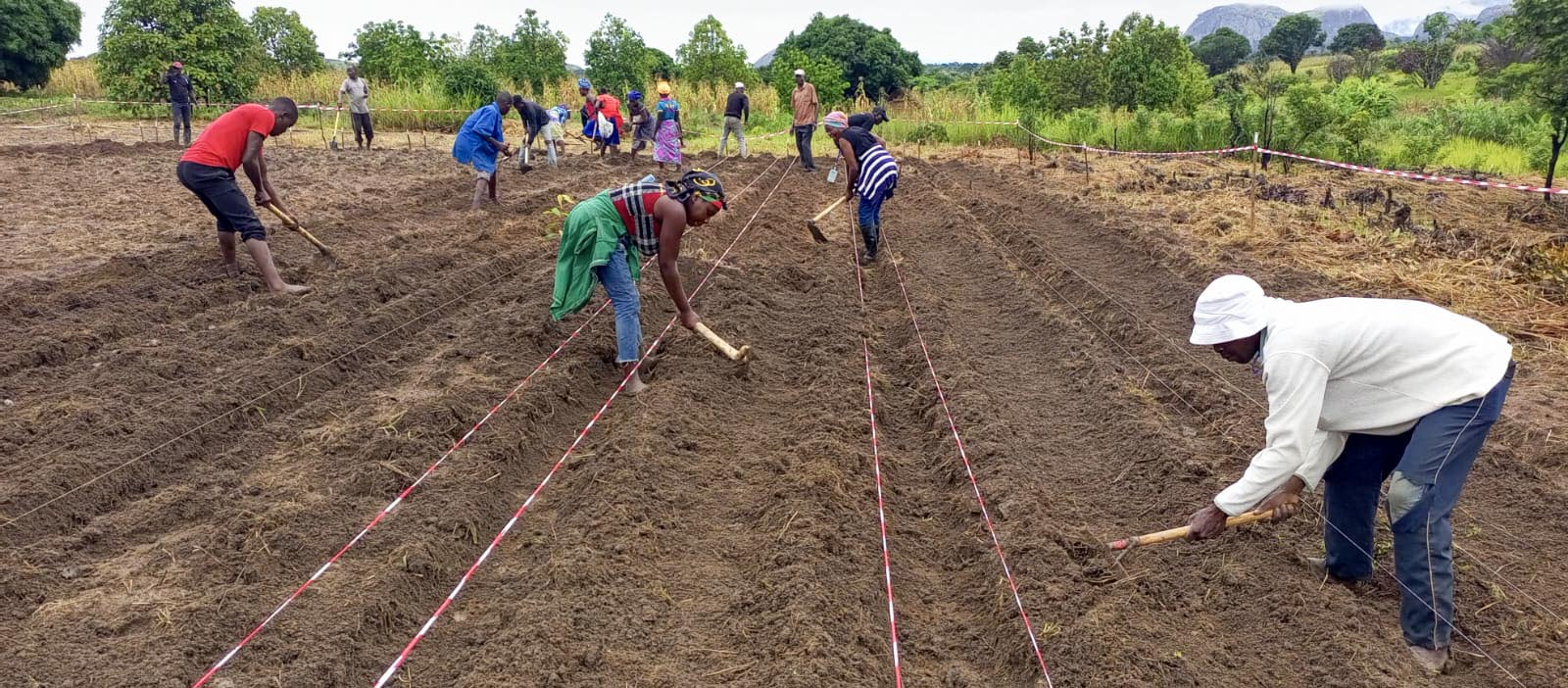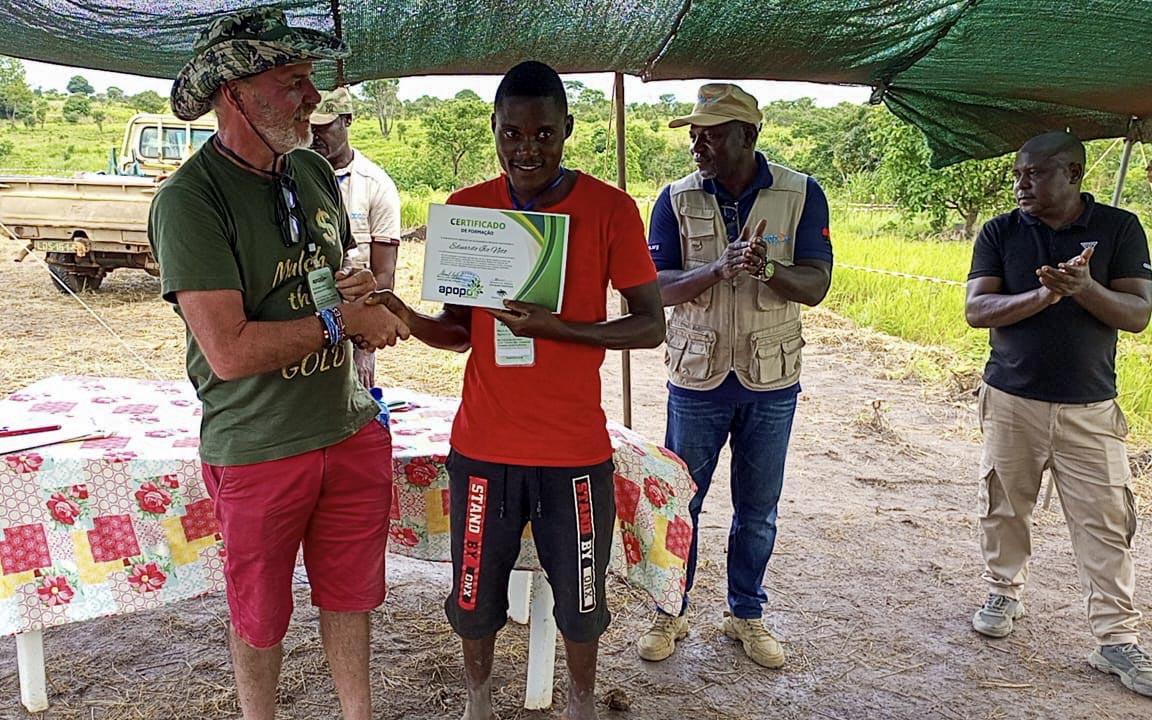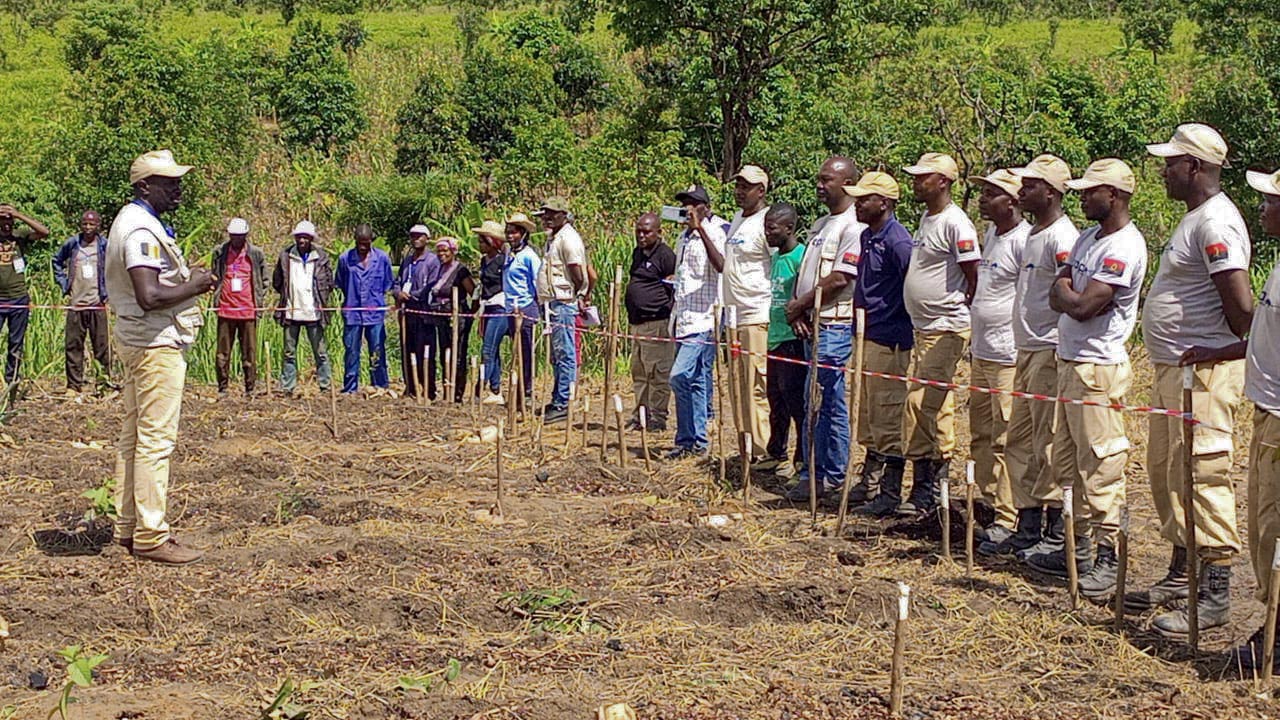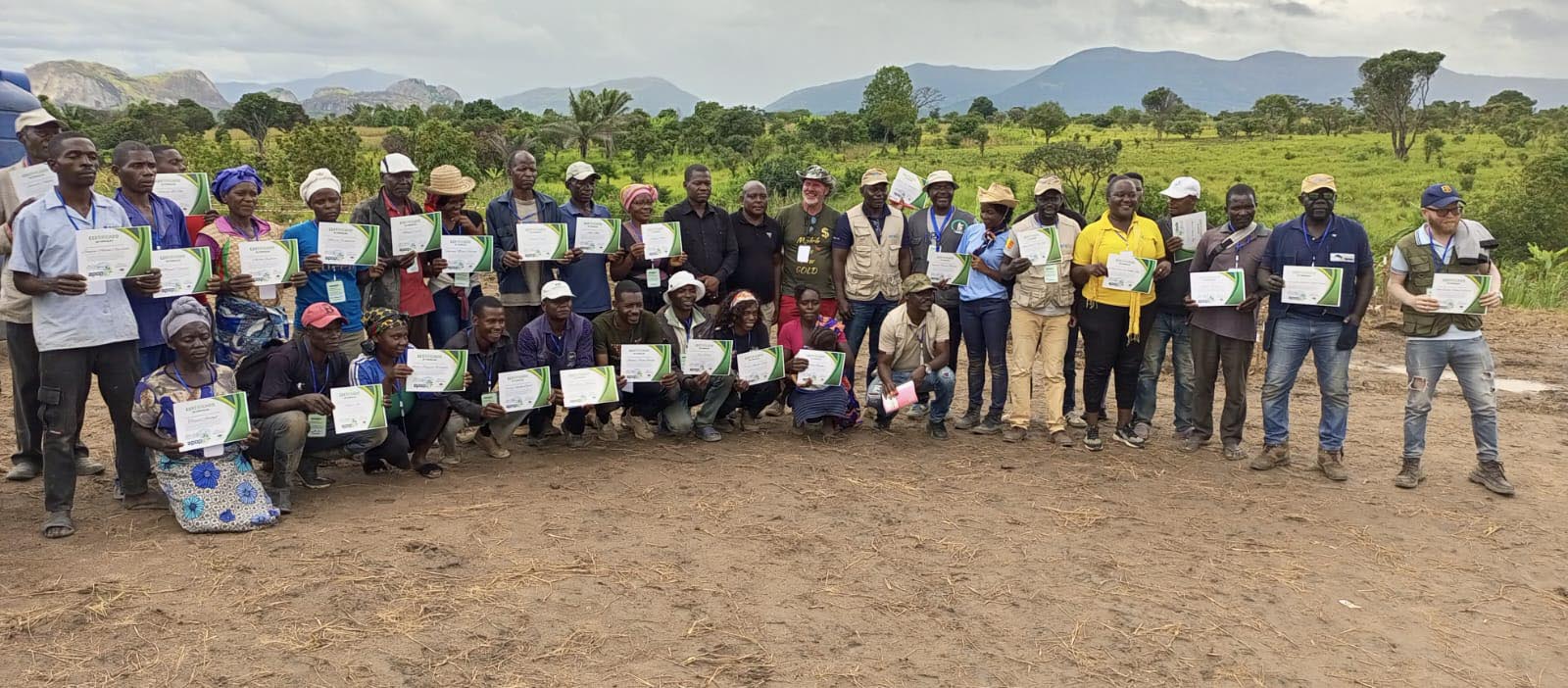From January 24th to 26th, APOPO hosted a syntropic farming workshop in Caiombo, a rural locality within the Ebo municipality of Cuanza Sul province, Angola. The event, led by syntropic farming expert Roland van Reenen, aimed to introduce and educate on the principles and practices of syntropic farming, an approach that could revolutionize agriculture in mine-affected areas and beyond.
APOPO carried out demining operations in Caiombo village from August to December 2021, resulting in nearly 350,000 square meters of land being released back to the community and 39 landmines and 360 other explosive remnants of war (ERW) destroyed. The syntropic farming workshop was part of a wider post-clearance training program led by APOPO to promote sustainable agricultural practices in newly cleared areas.
Understanding Syntropic Farming

Syntropic farming is a regenerative agriculture method that mimics the natural processes of ecosystems to create more resilient, sustainable, and productive agricultural systems. By integrating a variety of tree and plant species into a single plot, this method promotes biodiversity, improves soil health, and enhances crop yield without relying on chemical fertilizers. The practice aligns with APOPO’s vision of protecting people and the planet, offering a practical way to rehabilitate land previously considered unusable due to landmine contamination or poor agricultural practices.
Agroforestry Training for a Sustainable Future

The training involved 35 participants, including 25 men and 10 women, of which 20 were local farmers. The remaining participants were four members of APOPO staff, one person from the National Mine Action Authority (ANAM) also representing the Cuanza Sul Provincial Government, six people from the Institute for Agricultural Development (IDA), and four people from the Samuel Brace Cole Association (ASBC). The inclusion of APOPO’s local partners in the training was part of a collaborative effort towards sustainable development in the local community.
The workshop was officially opened on January 23rd, with the training sessions running until January 26th. An ANAM representative, the Municipal Administrator of Ebo and the Provincial Director of Agriculture, Livestock, and Fisheries attended the opening ceremony as a sign of the local government’s support for sustainable agricultural initiatives.
Roland’s expert guidance provided participants with hands-on experience and theoretical knowledge on implementing syntropic farming techniques. These practices are particularly relevant for Angola, a country striving to overcome the legacy of landmines and seeking sustainable solutions for food security and economic development.
Together with the trainer, the 35 trainees worked actively to establish a 20 x 25-meter agriculture pilot field (500 square meters) to plant a combination of trees, vegetables, legumes, fruit trees, cereals and roots.
Advancing Sustainable Agriculture with APOPO

APOPO’s involvement in syntropic farming training reflects our commitment to addressing environmental and social challenges through innovative and sustainable solutions. By promoting syntropic farming in Angola and other regions affected by landmines, APOPO not only contributes to the global movement towards sustainable agriculture but also aids in the recovery of lands once rendered unsafe or infertile.
APOPO continues to explore and support innovative approaches to global challenges, demonstrating the potential of collaborative efforts between NGOs, local communities, and international experts in creating a more sustainable and prosperous future.
HOW YOU CAN TAKE ACTION
Support the HeroTREEs project by donating to APOPO on GlobalGiving
Follow us on social media to get news on our projects.


